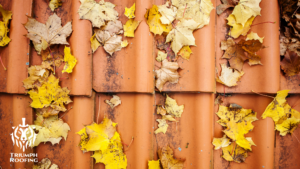How Often Should I Get My Roof Inspected?
Your roof is the shield that protects your entire home from the elements. Regular inspections are crucial to ensure it’s functioning properly and to catch any minor issues before they snowball into major repairs. If you have been wondering “how often should I get my roof inspected by a professional?”, then you are in the right place. Here is what our trusted Triumph Roofing team has to say about roof inspections.
Yearly Inspections Are Ideal
The National Roofing Contractors Association recommends getting your roof inspected a minimum of at least once a year. This annual checkup should ideally be done in both the fall and spring, allowing you to address problems early on. In doing so, you can avoid costly replacements down the line. Fall inspections are particularly important as they ensure your roof is ready for winter’s climate.
Spring Inspections: Preparing for Warmer Months
Spring inspections help assess any damage that might have occurred over winter. Heavy snowfall, ice dams, and strong winds can loosen shingles, damage flashing, and cause leaks. Early detection allows for repairs before spring showers and summer heat exacerbate the problems.
Fall Inspections: Gearing Up for Winter
Fall inspections focus on ensuring your roof is winter-ready. This includes checking for:
- Missing or damaged shingles: Missing shingles expose the underlayment to the elements, and damaged ones can deteriorate further.
- Clogged gutters: Clogged gutters prevent proper water drainage, which can lead to leaks and fascia board damage.
- Flashing issues: Flashing around chimneys, skylights, and vents seals these areas and prevents water intrusion. Damaged flashing needs immediate attention.
Beyond Yearly Inspections
While yearly inspections are ideal, there are still many situations that require additional roof inspections such as:
- After major weather events: Hailstorms, high winds, and heavy snowfall can damage your roof even if it appears visually intact. Get a professional inspection after such events to identify and address any hidden issues.
- New roof installation: Even a brand new roof deserves an inspection after a year to ensure proper installation and identify any settling issues.
- Selling or buying a home: Both buyers and sellers should get a roof inspection during the transaction process. This helps identify any potential problems and negotiate repairs if needed.
Finding a Qualified Company for Roof Inspection

Look for a certified roofing inspector who is experienced and insured. Ask family, friends, or neighbors for recommendations, and check online reviews. At Triumph Roofing, we pride ourselves on being the trusted neighborhood roofer. We always have your best interest in mind, and work hard to ensure customer satisfaction. We are one of the Phoenix Valley’s most trusted roofers, and would love to help you get your roof right.
By prioritizing regular inspections and taking proactive measures, you can ensure your roof provides reliable protection for your home for years to come. Contact our professional roofers today to get a quote for your next roofing project!
Get an Instant Estimate




